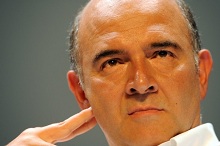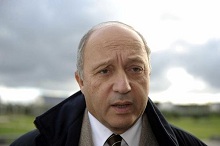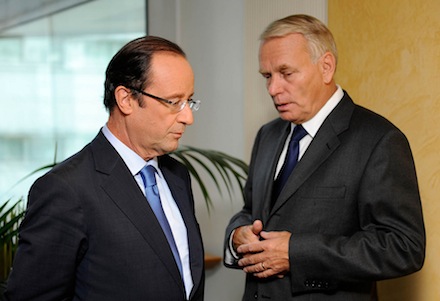
Step back from the obsession over Marine Le Pen’s economic nationalism or from the day-to-day headlines over François Fillon’s scandals and imploding campaign. ![]()
With about six weeks to go in the French election, we know that the two established parties of the French political elite — Fillon’s center-right Les Républicains and the center-left Parti socialiste (PS, Socialist Party) of president François Hollande and its presidential nominee Benoît Hamon– are doing historically poorly.
It’s entirely possible that the Republican and Socialist candidates place third and fourth, if current polls are predictive, giving the French public for the first time a runoff without either major party. In aggregate, the two candidates poll around 33%, a massive drop from the combined first-round percentage of Hollande and Nicolas Sarkozy in 2012 (55.81%), and even lower than in 2002, when incumbent Jacques Chirac and Socialist Lionel Jospin still managed a combined total of 36.06%. (You’ll remember 2002 as the year Le Pen’s father, Jean-Marie Le Pen, made it to the runoff by edging out Jospin to second place).
If the election were held today, both of the runoff candidates would be ‘outsiders’ — the Front national leader, Marine Le Pen, and the independent Emmanuel Macron, the head of the En marche movement and a former Hollande aide and economy minister running as a centrist. Polls show that Macron holds a roughly 60%-40% edge over Le Pen in the May 7 runoff.
But that also creates a far higher level of uncertainty about the outcome of the elections that follow on June 11 and 18, when voters — fresh after selecting a new president — will also select the 577 members of the lower house of the French parliament, the Assemblée nationale (National Assembly). There’s surprisingly little coverage of those elections, though they will be just as important (maybe more) than the presidential race.
A return to cohabitation or a shift to coalition-style politics?
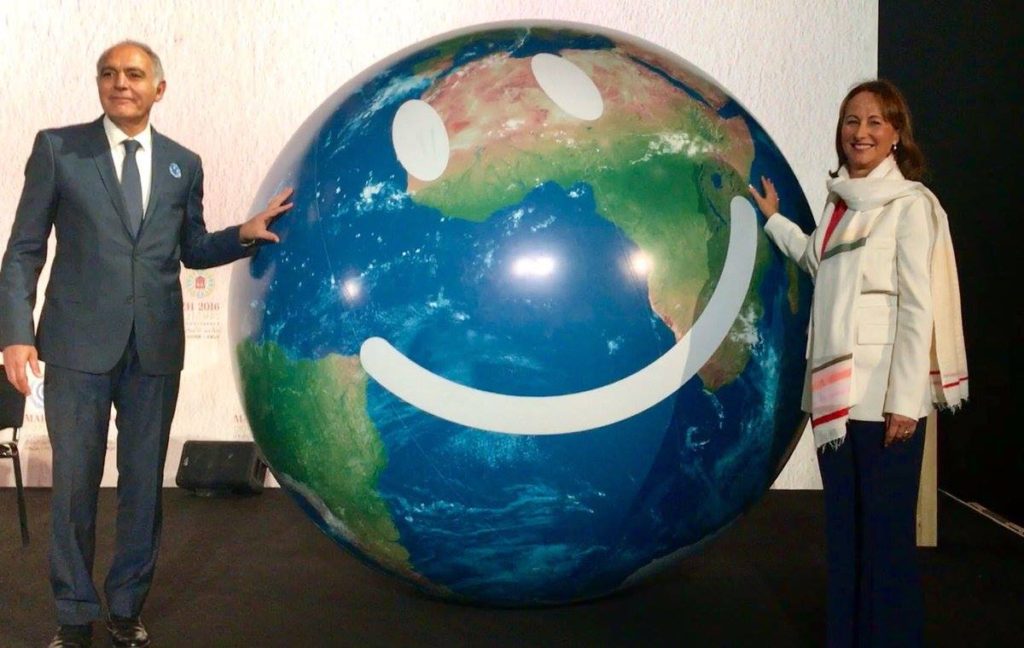
Neither Le Pen’s Front national nor Macron’s En marche today seems to have the kind of national party infrastructure to follow a presidential victory with a parliamentary victory, though the president-elect has for the last three election cycles roared into June parliamentary elections with massive momentum. Macron has vowed that En marche will field 577 candidates for the parliamentary elections, and while he has indicated he wants to accept political refugees from mainstream parties, he also wants at least half of the movement’s candidates to have no previous political experience or affiliation.
Since 2002, each French presidential term (now five years, reduced from seven years) has lined up with the term of the National Assembly, such that the parliamentary elections follow a month after the presidential runoff. Generally speaking, since 2002, the prime minister has served as the chief parliamentary official carrying out the president’s legislative program. Even in 2012, when Hollande narrowly edged Sarkozy in the May presidential runoff, the Socialists and their allies still wound up with nearly 58% of the seats in the National Assembly after elections a month later.
When presidential terms and parliamentary terms weren’t harmonized, it was far likelier that the presidency and the National Assembly could be controlled by different parties. In cases of divided government — cohabitation — the president’s power crumbles and the opposing prime minister sets the domestic agenda and much of the foreign policy agenda. In the Fifth Republic, France has seen only three periods of cohabitation: the Chirac premiership under the Mitterand presidency (1986-88), the Balladur premiership under the Mitterand presidency (1993-95) and the Jospin premiership under the Chirac presidency (1997-2002).
But with the Front national as strong as it’s ever been (Le Pen still leads Macron, narrowly, in the first-round polls) and with a Macron victory becoming more likely, the Republicans and Socialists will not simply give up. To make things trickier, the Front de gauche (Left Front) will also be running candidates in the parliamentary race — presumably including its presidential contender, Jean-Luc Mélenchon, as he did in 2012.
That makes it more likely that no single party or movement will win the June parliamentary elections. Even if Macron wins the presidency in a massive landslide, he might still have to face cohabitation or, for the first time in French political history, cobble together the kind of multi-party coalition government so much more common in the Nordics and Germany.
In the past, voters have had a good idea about who will form the government because, presumably, the prime minister and other key officials will come from the same party as the president. But Macron doesn’t have a party. So if, indeed, ‘personnel is policy,’ French voters are somewhat in the dark about what to expect under Macron. Rather unhelpfully, Macron hasn’t specified exactly who would be prime minister, or what he’s looking for in a prime minister, other than someone with experience who can command a parliamentary majority. (Well, of course…).
It may be that Macron doesn’t want to tip his hand, or it may be that Macron knows just how unsettled the June parliamentary elections will be. Per Macron, the next prime minister will not be François Bayrou, a center-right moderate and three-time presidential contender who announced he would not run this year and, instead, endorsed Macron. Earlier today, Macron mused that it would be great to appoint a female prime minister and, indeed, former Socialist presidential nominee, ecology minister Ségolène Royal, has praised Macron throughout the election (though not quite formally endorsed him). She would fit the bill.
Traditionally, France’s unique two-round system has helped the two major parties maintain their lock on power. Smaller parties and contenders are often weeded out after the first round, often setting up a direct second-round contest between the center-right and the center-left. Unlike for presidential runoffs, however, it is possible to have a three-way runoff (triangulaire) or even a four-way runoff (quadrangulaire) if the additional candidate(s) wins at least 12.5% of the vote in a given constituency.
So far, they have been surprisingly rare. Among 577 constituencies, only 44 resulted in triangulaires in 2012 (despite Marine Le Pen’s robust third-place showing in the 2012 race) and the high-water mark is 1997 with 79 triangulaires. France hasn’t seen a parliamentary quadrangulaire since 1978.
This system, in the past, has massively disadvantaged third parties. Despite Marine Le Pen’s third-place showing in the April 2012 presidential election and despite the Front national‘s 13.6% support nationwide in the first round of the June 2012 parliamentary election, the party ended up with just two seats in the National Assembly (0.35% of all seats).
In a world where the Socialists and the Republicans are struggling to win 15% or 20% of the national vote, however, you can expect a rise in the number of triangulaires or even the return of a handful of quadrangulaires.
Buckle up for a bumpy five-way contest for the National Assembly

But that calculus changes when the Front national is winning more supporters than the Republicans, and when Macron’s En marche movement appears stronger than the Socialists and the Front de gauche. Moreover, the unprecedented nature of the election and the shifting political sands leave much of the parliamentary election in doubt (with surprisingly few polls available to guide analysis).
No one ever gave Hollande or anyone else in the Socialist camp much chance at winning in May. Barring a major upset over the next six weeks, the Socialists will also lose seats in June, in light of Hollande’s unpopularity and Hamon’s weakness. Hamon is running harder to the left than either Hollande or one-time presidential frontrunner Manuel Valls, the former prime minister. In a sense, the real winner of the Socialist primary contest was Macron, who is closer to the center-left than the center-right. To that end, leading Socialist officials are already breaking ranks by abandoning Hamon for Macron — most recently, the former Socialist mayor of Paris, Bertrand Delanoë, though Royal and finance minister Michel Sapin are very sympathetic to Macron’s candidacy. Hollande (who remains close to Macron, his former deputy chief of staff) and Valls have yet to campaign for Hamon.
As it becomes more likely that Macron will win the presidency, it’s possible that the Socialist Party will split into factions, with a core leftist wing supporting Hamon and a more centrist wing migrating to En marche. While that could benefit Macron in June by adding some experience hands to the En marche movement, it also tarnishes Macron’s avatar as an independent agent of change.
Before his campaign cratered due to the ‘fake jobs’ scandal and impending indictment for corruption and abuse of public funds, former prime minister and Republican nominee François Fillon was favored to edge out Macron and then win the runoff against Le Pen. (In hypothetical scenarios, Fillon still leads Le Pen by a margin only slightly smaller than Macron does). But as Fillon falls further into third place behind Macron (police indicate that Fillon will be notified of a formal investigation — essentially indicted — on March 15), and as leading Republicans, including his former rival Alain Juppé, abandon his campaign, the Republicans risk depressing their own turnout in June as well as in April.
There’s still time for the Republicans to replace Fillon if the embattled prime minister drops out of the race. But Juppé on Monday, even as he slammed Fillon’s campaign as ‘at a dead end,’ ruled himself out as a Plan B. Other top Fillon surrogates, including Bruno Le Maire and many of Fillon’s campaign staff, have already abandoned him. On Monday, senior Republicans met and reaffirmed their support for Fillon, though it’s still possible for Fillon to drop out — François Baroin, a 51-year-old rising star, Troyes mayor and former finance and budget minister, who is close to Sarkozy and Fillon, now seems the most likely ‘plan B’ candidate, if it comes to that. If Fillon’s numbers drop further, however, it could lead to catastrophic losses in the parliamentary elections that, only two months ago, would have been an easy follow-up after a resounding Fillon victory.
A new re-branding of the French left and the French right — or a new re-ordering of French politics into liberal and illiberal camps
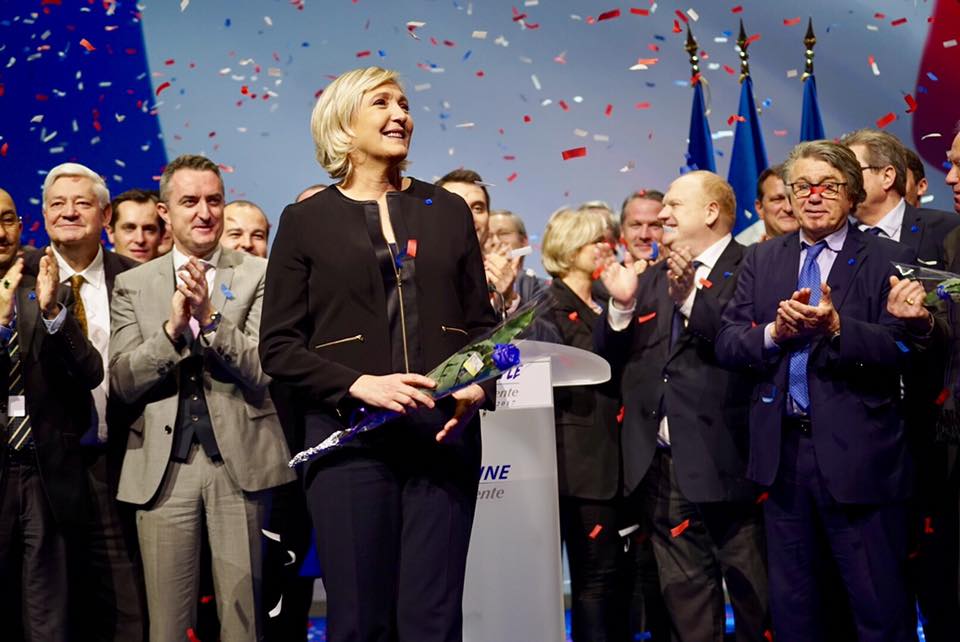
It’s true that parties have been historically weak in France compared to the United Kingdom or the United States. The ‘Republican’ veneer is a 2015 rebranding of what was, during the Chirac and Sarkozy eras, the ‘Union for a Popular Movement,’ which was a successor the old Gaullist ‘Rally for the Republic,’ itself three makeovers removed from Charles de Gaulle’s ‘Rally of the French People’ that dates to the WWII Free French resistance.
The Socialist Party has had more etymological consistency, if not policy consistency. It existed as the French Section of the Workers’ International from its foundation in 1905 in the middle of France’s Third Republic through 1969, when it was just one of a handful of leftist French parties and movements that ultimately (but not completely) consolidated behind François Mitterand in the 1970s and 1980s. France’s communists remained separate, and form the nucleus of the Front de gauche today.
It’s also true that, in a narrow sense, a Macron-Le Pen runoff looks a lot like ‘left-right’ runoffs of the past — this is just another realignment of a new left and a new right as in the past. But Macron’s call for reform is closer to Sarkozy’s economic vision than that of many French Socialists today, and Le Pen’s economic protection is far out-of-sync with the business-friendly conservatism of Fillon and the Republicans.
Instead, the Macron-Le Pen runoff looks more like a contest between liberalism and illiberalism, which increasingly, more than traditional left-right differences, the central fight in developed democracies.
For now, the French political scene looks like a free-for-all — especially if Macron and Le Pen emerge as the runoff contenders. How that translates into a two-round parliamentary election in just three months’ time, however, is anyone’s guess.
